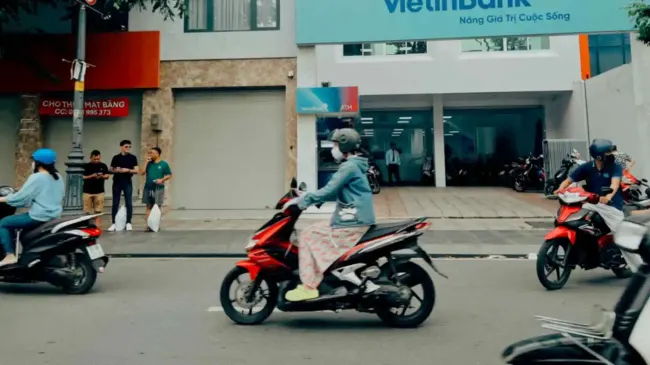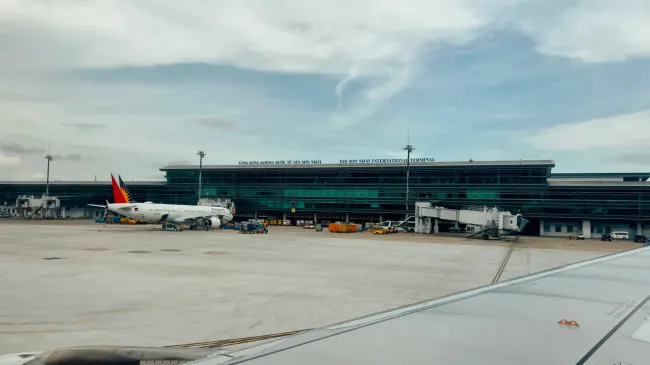
Vietnam
Welcome to Vietnam
Planning a trip to Vietnam? Check if you need a visa and which type. We'll guide you through the application process so you can sort it out quickly and get back to planning your adventure.
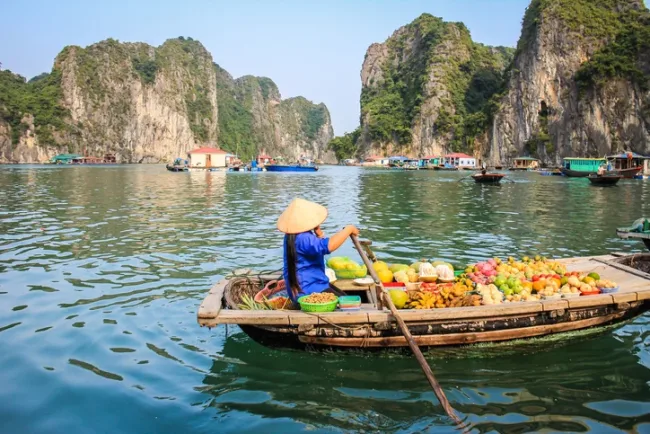
What’s a Vietnam eVisa, and who’s it for?
The Vietnam eVisa is an electronic visa, meaning you can apply for it entirely online without the hassle of visiting an embassy or consulate.
Who’s the Vietnam eVisa for?
This eVisa is available to anyone who's not a Vietnamese citizen and is not from a visa-exempt country.
This includes nationals from Australia, New Zealand, Singapore, South Africa, South Korea, Japan, Russia, the Philippines, and more.
Who’s not eligible for a Vietnam eVisa?
While the eVisa is open to everyone, specific categories, however, are visa-exempt:
-
Nationals from the following countries: Chile, Panama, Cambodia, Indonesia, Kyrgyzstan, Laos, Malaysia, Singapore, Thailand, Philippines, Brunei, Myanmar, Belarus, Denmark, Finland, France, Germany, Italy, Japan, Norway, Russia, South Korea, Spain, Sweden, the United Kingdom (excluding British National Overseas passport holders), and Kazakhstan.
-
Travelers going to Phu Quoc island for up to 30 days.
-
APEC Business Travel Card (ABTC) holders with valid passports visiting for up to 60 days.
-
Overseas Vietnamese and their spouses and children, as well as spouses and children of Vietnamese citizens, all of whom get a 5-year visa exemption.
What’s the purpose of the Vietnam eVisa?
This eVisa lets international visitors enter and stay in Vietnam for a specified time, typically for tourism, business, or transit.
How long can you stay with a Vietnam eVisa?
The eVisa is valid for up to 90 days, and you can choose between single or multiple-entry options.
What’s a Vietnam APEC Business Travel Card, and who’s it for?
The APEC Business Travel Card is more than a regular visa. It's a special pass for business people from Asia-Pacific Economic Cooperation (APEC) member countries, making travel to Vietnam easier under specific conditions.
Who’s the Vietnam APEC Business Travel Card for?
Business travelers from the following APEC countries with an APEC Business Travel Card marked with "VNM" can enter Vietnam for business without a visa:
Australia, Brunei, Chile, China, Hong Kong, Indonesia, Japan, South Korea, Mexico, Malaysia, New Zealand, Papua New Guinea, Peru, Philippines, Russia, Singapore, Taiwan, and Thailand Thailand.
What’s the purpose of the Vietnam APEC Business Travel Card?
It's designed to smooth the process for business travelers moving between APEC countries.
To be eligible to apply for an ABTC, you must hold a valid passport from an APEC country and proof of frequent business travel in the region.
How long can you stay with a Vietnam APEC Business Travel Card?
The card is valid for three years, allowing stays in Vietnam for up to 60 days per visit.
Please note: We currently do not offer the Vietnam APEC Business Travel Card. If your country is eligible, please check the application process details on your country’s government website.
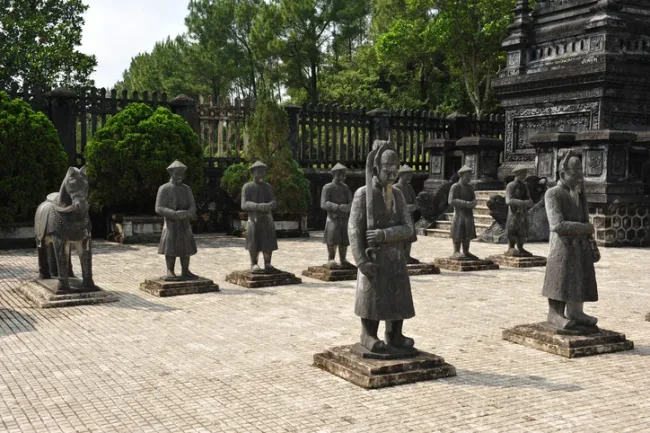
What are the Vietnamese long-term visa options, and who are they for?
Vietnam provides a variety of long-term visas for different needs, such as work, study, business, and living in the country. Here's a quick look at the popular ones:
-
Student Visa: For those enrolled in Vietnamese universities.
-
Working Visa (LD1 and LD2): Get this by securing sponsorship from a Vietnamese company, followed by visa stamping at a Vietnamese mission abroad or upon arrival.
-
Investor Visa (DT1, DT2, DT3, DT4): Aimed at investors contributing between VND3 billion to VND300 billion to Vietnam's economy. The visa's duration and terms depend on your investment size.
-
Diplomatic Visa: For members of diplomatic missions, consular officers, and certain short-term visitors, provided they have an official letter from government bodies or embassies. This visa can be valid for up to a year.
While iVisa doesn't offer these visas, you can learn more on the [Vietnam Ministry of Foreign Affairs website]. (https://www.mofa.gov.vn/en)
Staying healthy in Vietnam: Here’s what you need to know
When visiting Vietnam, healthcare quality can differ greatly depending on the location and the type of facility. Here's a quick guide to help you stay healthy.
Make sure to stay updated on routine vaccines
-
Get routine shots like MMR, diphtheria-tetanus-pertussis, chickenpox, and polio. Hepatitis A and Typhoid vaccines are also advised, as these diseases are present in Vietnam.
-
Stay informed about Vietnam’s COVID-19 guidelines, including any quarantine or testing rules, through airlines or the [Vietnamese government website]. (https://vietnam.travel/things-to-do/information-travellers-novel-coronavirus-vietnam)
Medical facilities
-
There are international standard clinics and hospitals in major cities like Hanoi, Ho Chi Minh City, and Da Nang. These facilities are generally equipped with modern medical equipment and staffed by skilled healthcare professionals, including English-speaking doctors.
-
In rural or remote areas of Vietnam, medical facilities are basic. They may not have the capacity to handle severe medical conditions. Medical evacuation to a city or another country might be necessary in such cases.
-
Pharmacies are widely available in urban areas, and many over-the-counter medications are easy to obtain. However, it's essential to be cautious about the quality and authenticity of the medication. It's recommended to go to reputable pharmacies attached to hospitals or clinics for prescription drugs.
Health insurance
We recommend taking out travel health insurance before you travel anywhere from any destination.
All the major cities in Vietnam will have private medical care, but it can get expensive. You should choose travel insurance with high limits.
Contact your insurance provider before traveling to ensure you have the right level of coverage.
Other areas to consider getting coverage for:
-
Trip cancellations and delays.
-
Medical expenses and medical evacuation.
-
Lost baggage.
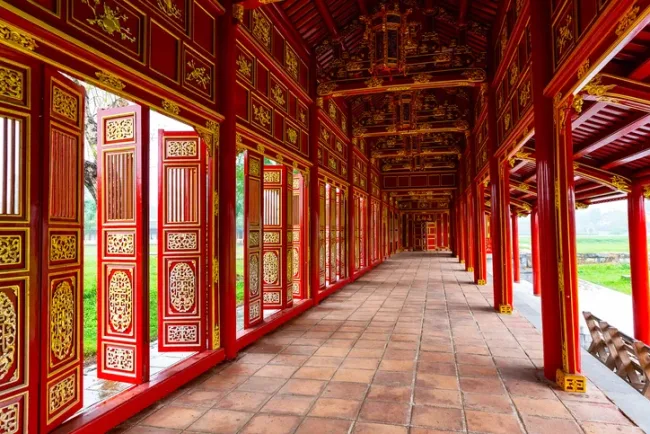
Things to be aware of when visiting Vietnam
Keep an extra eye on the following to keep healthy and safe during your trip to Vietnam:
-
Food and water safety: Exercise caution with food and water to avoid traveler's diarrhea and other gastrointestinal issues. Eat well-cooked food, avoid raw vegetables and fruits you can't peel, and drink bottled or filtered water.
-
Mosquito-borne diseases: Vietnam has a risk of mosquito-borne illnesses such as dengue fever, Zika virus, and malaria in some rural areas. Using insect repellent, wearing long-sleeved shirts and trousers, and sleeping under a mosquito net can help prevent bites.
-
Heat and humidity: Vietnam's climate can be hot and humid. Stay hydrated and protect yourself from the sun with hats, sunglasses, and sunscreen. Avoid heatstroke by staying in the shade during the hottest parts of the day.
Medication for personal use
Follow these tips to bring over-the-counter medicines into Vietnam:
-
Declare all medications: Report all medicines for personal use to customs.
-
Original packaging: Keep medicines in original packaging and carry a prescription or doctor’s note, preferably in English.
-
Prescription or doctor's letter: Present the medical prescription issued by your doctor or other competent authority, preferably in English.
-
Check for restrictions: Contact your nearest Vietnamese embassy to verify that all of your prescription(s) are legal to bring with you.
-
Carry what you need: Bring only a reasonable quantity that aligns with the duration of your stay to avoid complications.

 Australia ETA Online
Australia ETA Online
 United Kingdom ETA
United Kingdom ETA
 India Tourist eVisa
India Tourist eVisa
 Canada ETA Visa
Canada ETA Visa
 Turkey eVisa
Turkey eVisa
 Egypt eVisa
Egypt eVisa
 Singapore SG Arrival Card
Singapore SG Arrival Card
 Indonesia eVoa Visa
Indonesia eVoa Visa
 Aruba ED Card
Aruba ED Card
